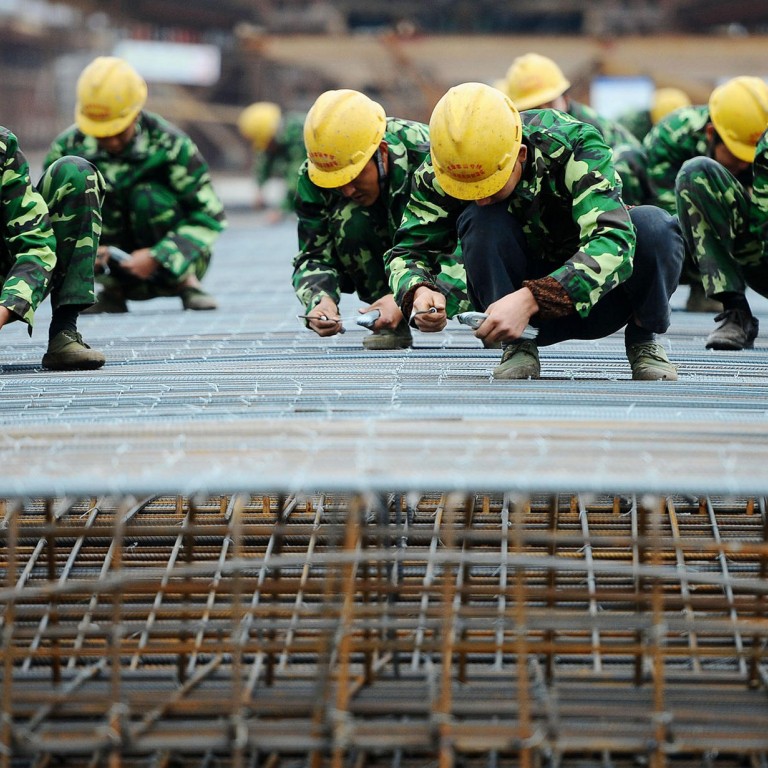
Worst may be over for China economy as stimulus kicks in
Weakness in property offset by strong infrastructure investment and more robust retail sales, indicating initial success in policy fine-tuning
The mainland economy may bottom out over next few months, thanks to Beijing's fine-tuning policy, as industrial production and consumption gathered steam last month and accelerated investment in infrastructure offset a deeper slide in the property market.
Economists expect Beijing to roll out more mini-stimulus measures, on the top of the recent moderate easing of money supply, in a bid to hold economic growth above the central government's bottom line, which is believed to be somewhere below but close to the annual target of about 7.5 per cent.
Industrial production grew 8.8 per cent year on year last month, slightly faster than April's 8.7 per cent, the National Bureau of Statistics said yesterday. Power generation rose 5.9 per cent, accelerating from April's 4.4 per cent.
But the property market remained a major drag on economic recovery, with investment in the sector growing 14.7 per cent year on year in the first five months of the year, down from the 16.4 per cent growth between January and April.
We expect the government to continue with the approach it has followed
Home sales value in the first five months dropped 10.2 per cent, while sales of office building units fell 14 per cent.
However, the weakness in the real estate sector was offset by strong infrastructure investment, which climbed 25 per cent in the first five months from a year earlier, accelerating from a 22.8 per cent increase from January to April.
Retail sales also posted stronger growth last month, up 12.5 per cent year on year compared with 11.9 per cent growth in April, driven by a surge in online sales, which soared 53.2 per cent.
Julian Evans-Pritchard, an economist at London-based Capital Economics, said the recent data showed policymakers had been "reasonably successful" at fine-tuning policy to stabilise growth.
"We suspect that downward pressures from the property sector may intensify but, for now, there is no pressing need for significant policy loosening," Evans-Pritchard said.
Many economists said second-quarter gross domestic product growth might be lower than that in the first quarter because of the base effect, but should recover in the third quarter.
Premier Li Keqiang has taken a string of steps, such as cutting reserve requirement ratios for selected lenders, to support the smaller and rural businesses that are deemed more vulnerable after GDP growth cooled to an 18-month low of 7.4 per cent in the first quarter.
The Ministry of Finance recently urged local governments to speed up fiscal spending, while the People's Bank of China pledged to offer greater financial support to the country's exporters and importers.
The central government also called for a strengthening of investment in selected areas such as railways and social housing construction.
Royal Bank of Scotland chief China economist Louis Kuijs said: "In the coming months, with economic growth still subdued but likely improving, we expect the government to continue with the approach it has followed recently, balancing calls for further growth support with the need to contain the pace of increase in leverage."
Gerard Burg, a senior economist for Asia at National Australia Bank, said the mainland might see a "controlled softening" rather than a hard landing.

